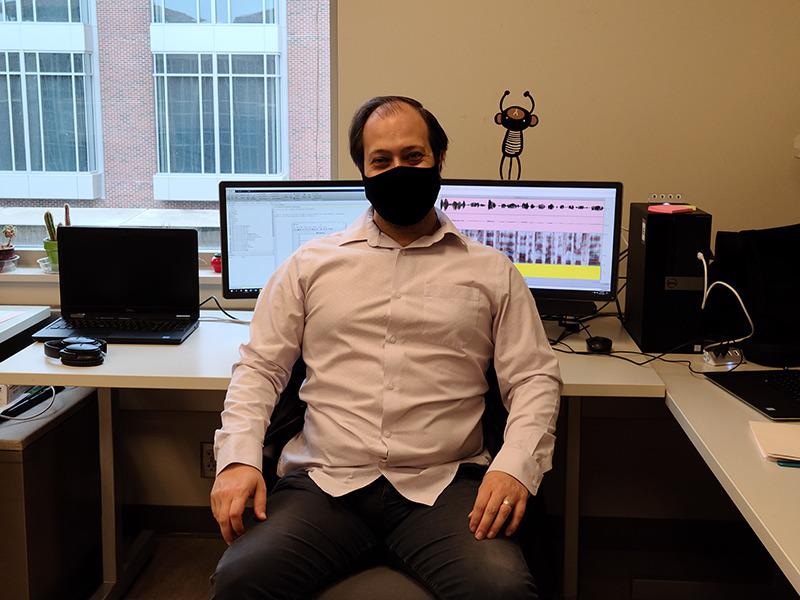Nov 25 2020
An innovator from Purdue University has taken the COVID-19 pandemic as an occasion to bring about changes as she works to offer new options for people suffering from Parkinson’s disease.
 Andrew Exner, a graduate research assistant in Purdue’s Motor Speech Lab, is working to help Parkinson’s patients during the COVID-19 pandemic. Image Credit: Andrew Exner/Purdue University.
Andrew Exner, a graduate research assistant in Purdue’s Motor Speech Lab, is working to help Parkinson’s patients during the COVID-19 pandemic. Image Credit: Andrew Exner/Purdue University.
Jessica Huber, who is a professor of Speech, Language, and Hearing Sciences and associate dean for research in Purdue’s College of Health and Human Sciences, is the head of Purdue’s Motor Speech Lab. At present, Huber and her colleagues are conducting virtual analyses to assess speech disorders associated with Parkinson’s by using artificial intelligence technology platforms.
Huber and her group have been making efforts to design telepractice tools for the evaluation and treatment of speech impairments such as Parkinson’s disease.
They were awarded a National Institutes of Health small business innovation and research grant to design a telehealth platform to simplify the speech treatment using the SpeechVive device, which has gained a lot of attention at the Annual Convention of the American Speech-Language-Hearing Association.
In this study, Huber and her colleagues are teaming with Modality AI, a startup company that created the AI platform that will be employed in the study.
The application of the technology we are evaluating may lead to far-reaching insights into more standardization in assessments, earlier diagnoses and possibly an easier way to track discrete changes over time to guide interventions. My personal research passion, and the mission of our lab, is to find ways to improve the quality of life for people with Parkinson's and other related diseases.
Andrew Exner, Graduate Research Assistant, Motor Speech Lab, Purdue University
Exner heads the virtual study for participants throughout the country to assess an AI platform that can gather and automatically quantify the speech skills of people suffering from Parkinson’s disease. There has been an increase in the need for AI platforms with the increase in telepractice due to the COVID-19 pandemic.
My interest in speech-language pathology actually started during my training as an actor and opera singer. I saw the effects of pathology on the voice and wanted to extend that interest into speech disorders.
Andrew Exner, Graduate Research Assistant, Motor Speech Lab, Purdue University
SpeechVive Inc. is an Indiana startup company that has been developed based on Huber’s research. The company has designed a wearable medical device to enhance the speech clarity of people with Parkinson’s disease.